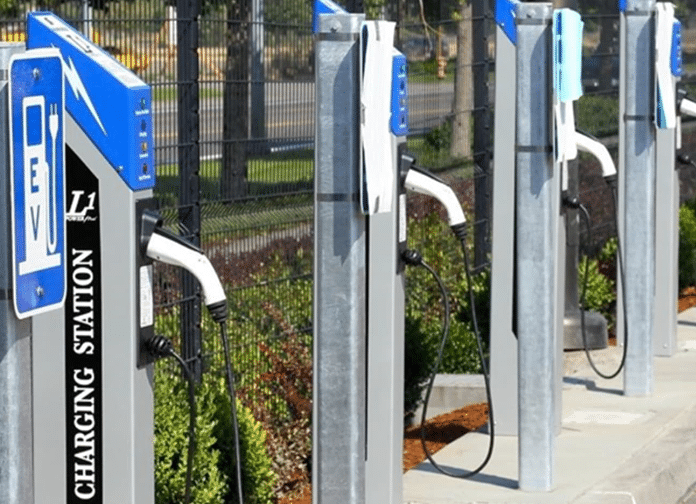Delaware Invests $21.5M in EV Chargers for Major Highways
The Delaware Department of Transportation (DelDOT) is advancing a $21.5 million initiative to install up to 10 new electric vehicle (EV) charging stations along major highways throughout the state. With around 4.5 percent of Delaware’s vehicles now being electric, demand for accessible charging infrastructure has been growing, motivating state officials to enhance EV support and accessibility.
For many EV owners, this expansion is seen as a significant step toward promoting sustainable transportation in Delaware.

The Delaware Department of Transportation (DelDOT) is moving forward with a $21.5 million plan to install up to 10 new EV charging stations along the state’s major highways. This initiative is funded primarily by $17.5 million in federal grants, with an additional $4 million provided by the state.
In partnership with the Delaware Department of Natural Resources and Environmental Control (DNREC), DelDOT views the charging stations as essential to advancing Delaware’s commitment to reducing carbon emissions and supporting cleaner energy options. Stephanie Johnson, a DelDOT official, highlighted the significance of the project, calling it “critical to Delaware’s future” as the state builds out its sustainable transportation infrastructure.
“The transition to EVs results in fewer carbon and gas emissions in our environment,” Johnson said. “For health reasons, it’s really important that we support this transition and provide equitable opportunities for this change.”
Delaware officials plan to expand EV charging infrastructure statewide as part of a $21.5 million initiative. The current proposal allocates three chargers for Kent County, four for Sussex County, and three for New Castle County. While officials are still finalizing specific locations, two sites have been confirmed: one in Camden and another in Harrington.
Despite the environmental and public health benefits expected from the project, the use of taxpayer funds has sparked criticism from some lawmakers. Opponents argue that government resources should be carefully managed, while supporters highlight the long-term gains for sustainable infrastructure and emissions reduction in Delaware.
State Rep. Lyndon Yearick (R) has raised questions about the investment.
“When the government gets involved and there’s no return on that capital—and we’re borrowing money to do it—I just don’t think that’s the best use of our resources right now. If a private company comes in and leases them out for a good return on that investment, that’s one thing. But to have the government make that investment, I think it’s hypocritical since they’ve never done it for gas stations.”
It’s unclear if Yearick is speaking about the gas station owners receiving federal support, or if the oil companies that feed them, have received federal support.
If Yearick means the oil and gas companies have not received federal support, he’s dead wrong. In the past, the US federal government has contributed tens of billions of dollars of federal tax subsidies for oil and gas companies. The White House released its fiscal year 2025 Budget, which lays out President Biden’s plan to lower costs for families, invest in America and the American people, upholding the President’s commitment to protecting and strengthening Medicare and Social Security, and reduce the deficit.
The White House statement said: “The President is committed to ending tens of billions of dollars of federal tax subsidies for oil and gas companies. Even as they benefit from billions of dollars in special tax breaks, oil companies have failed to invest in production. For the last two years, they have realized record profits, but instead of lowering prices for consumers or investing these funds, they have undertaken record stock buybacks, mergers, and acquisitions that benefited executives and wealthy shareholders. The Budget saves $35 billion by eliminating special tax treatment for oil and gas company investments, as well as other fossil fuel tax preferences.”
Delaware Offers Electric Vehicle Charging Equipment Rebates
Delaware’s Electric Vehicle Charging Equipment Rebate Program provides rebates for Level 2 electric vehicle charging stations purchased and installed after May 1, 2023.
The Department of Natural Resources and Environmental Control (DNREC) published a Guidebook to Installing Electric Vehicle Charging Stations. It provides an introduction to electric vehicles and helps with assessing options for choosing and installing electric vehicle charging stations.
These programs are part of Delaware’s highly commendable commitment to innovation in the transportation sector, reducing greenhouse gases, and improving Delaware’s air quality. It supports the Delaware Clean Vehicle Rebate Program.
Gridwealth Expands EV Charging to Delaware
On April 25, 2024, Gridwealth, a renewable energy developer and electricity supplier, announced that its EV division, Gridwealth EV, received a National Electric Vehicle Infrastructure (NEVI) grant from the Delaware Department of Transportation (DelDOT). The new EV charging station will be developed in partnership with Champlain Energy Systems, an authorized representative of EnerSys.
This year, Delaware was awarded nearly $18 million in NEVI federal funding, to be distributed over five years with a focus on locations along major highway corridors. Gridwealth’s upcoming charging site, located at 19563 Coastal Highway in Rehoboth Beach, will feature an advanced design that includes a battery energy storage system (BESS) to enhance reliability and efficiency.
“Gridwealth is revolutionizing EV charging in Delaware with the introduction of our next-generation stations,” said Todd Ford, chief strategy officer. “These high-speed, low-cost chargers combine cutting-edge design with battery storage to deliver a win-win for everyone. EV owners benefit from fast and affordable charging, and the grid experiences reduced strain thanks to off-peak recharging. This innovative approach sets a new standard for sustainable EV infrastructure, and we’re excited to be deploying it in Delaware.”

Electric Vehicle Marketing Consultant, Writer and Editor. Publisher EVinfo.net.
Services